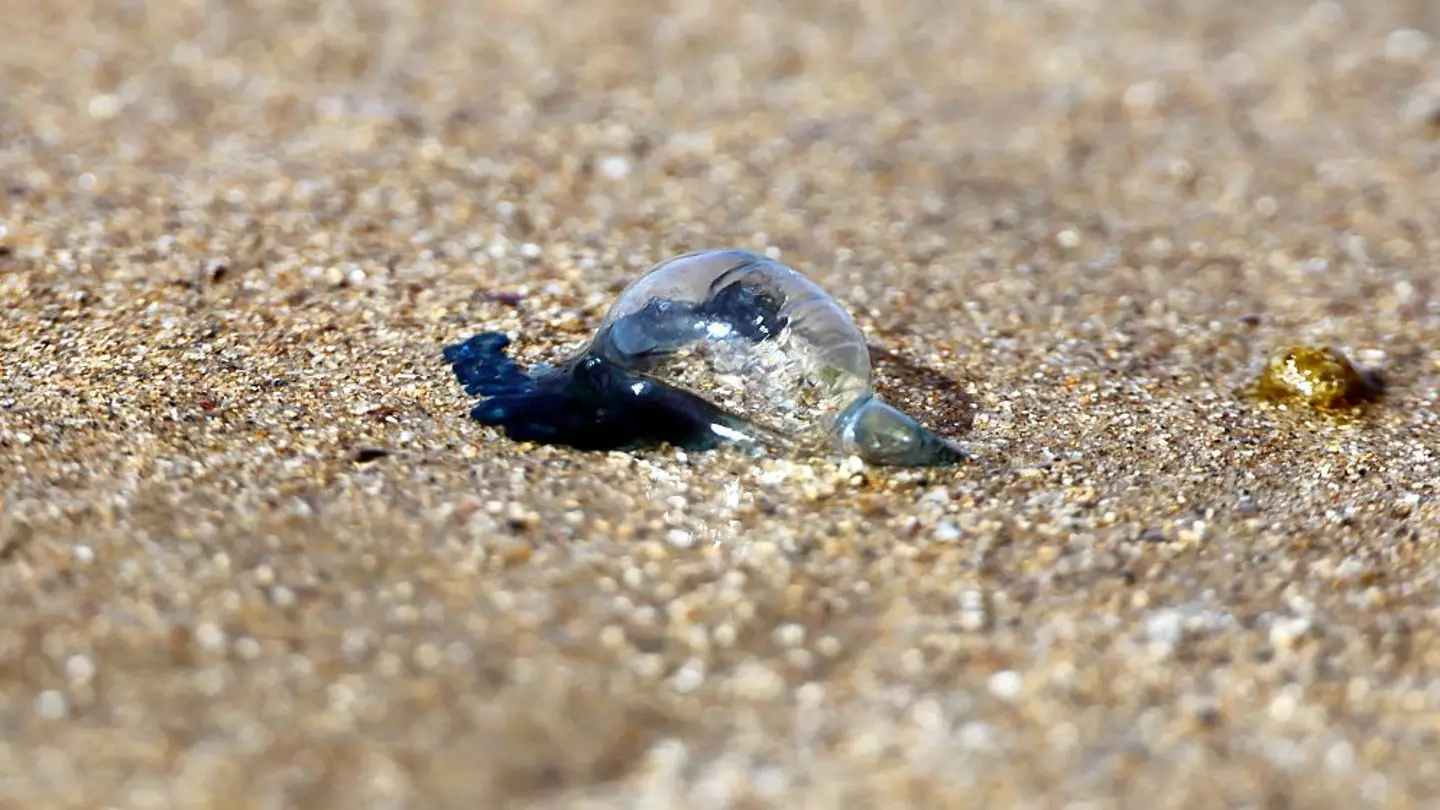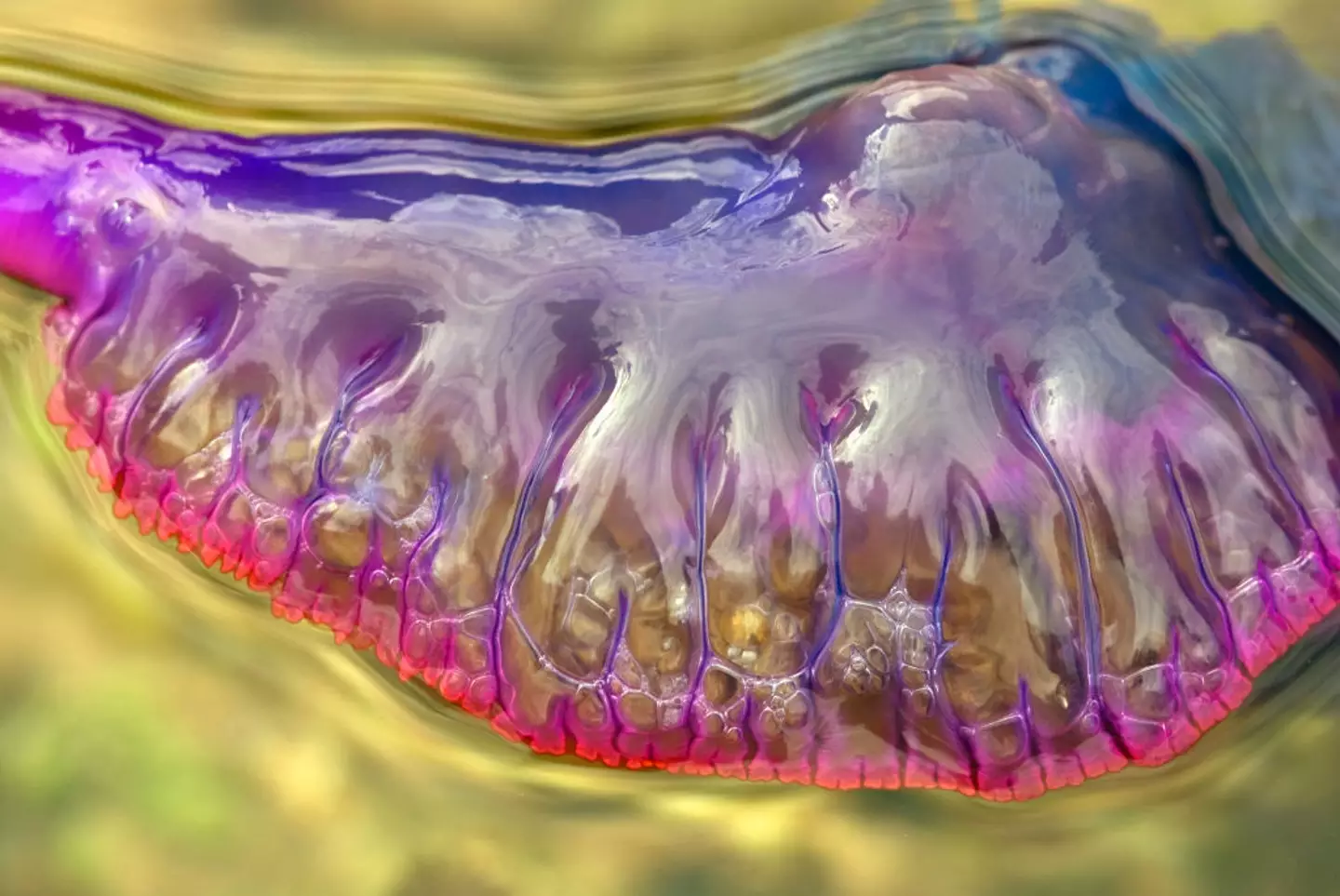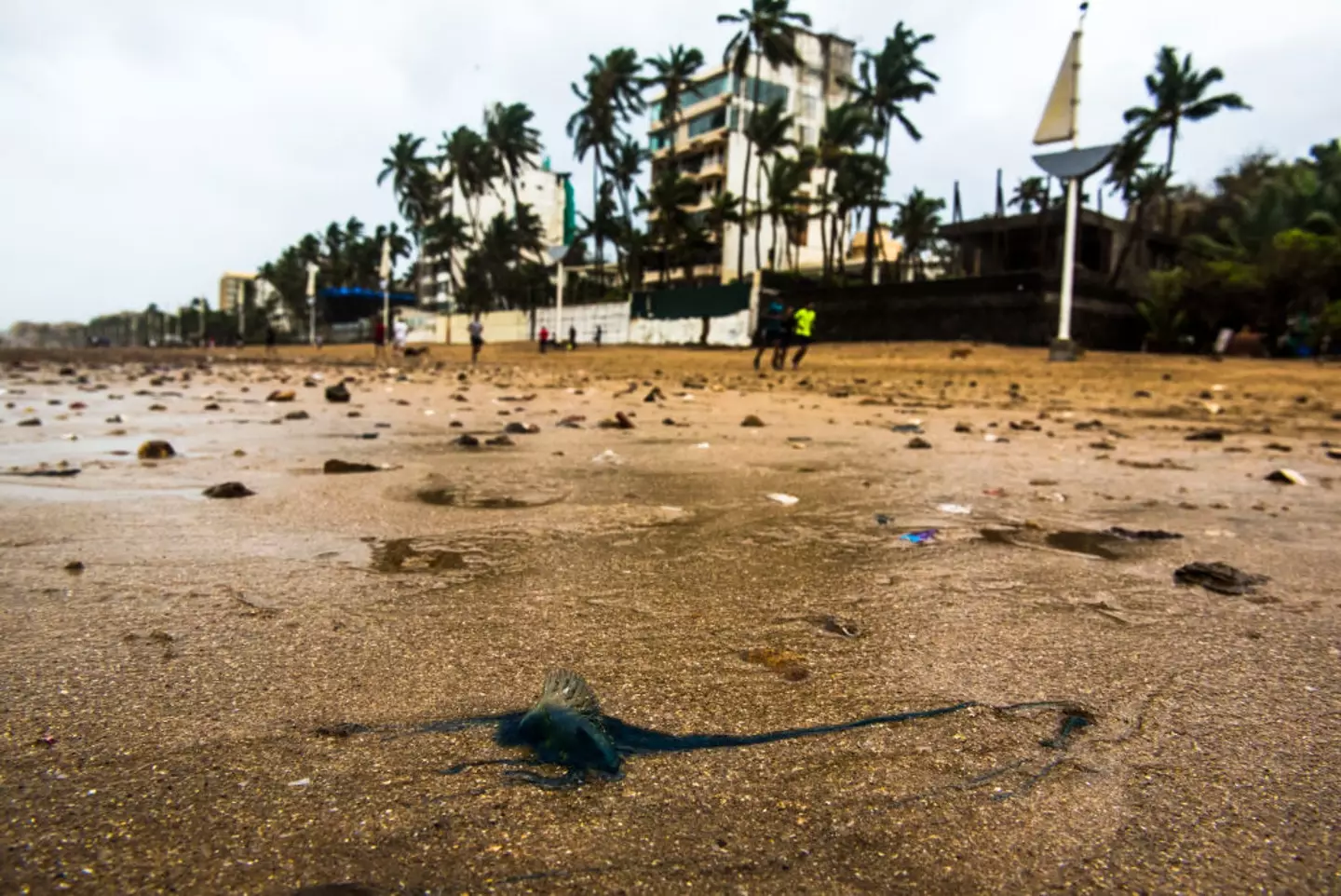
A warning has been issued after a species known as 'the world's most dangerous jellyfish' was spotted in numbers along Aberavon Beach in Wales.
Officials have warned Brits to remain vigilant if they spot these creatures on beaches, as they could have a severe impact on your health.
The Port Talbot Coastguard spotted several 'Portuguese Man O'War' along beaches, with the sea creatures also being known as 'Floating Terrors'.
They are often mistaken for jellyfish due to their translucent, balloon-type bodies and tentacles, but they are actually 'siphonophores' in the marine biology world.
Advert
This is defined as a colony of specialised organisms working together as one, which in this case, makes up an extremely dangerous creature - but how severely can they affect humans?

Their long trailing tentacles are actually venomous, delivering a powerful sting which can cause anything from red welts to blisters, but in more serious cases, your health may be impacted with a fever, or even heart or lung complications.
Deaths are rare, but they aren't impossible, as it is said that allergic reactions or heart issues can be caused by the sometimes deadly venom.
Even if the sea organism is dead, its tentacles can still sting you, meaning that those on the shore are just as dangerous as those freely roaming the oceans, where they can sometimes float in legions of 1,000 or more, according to the National Ocean Service.
Advert
Its blue, violet or pink balloon-like float makes it noticeable to those at sea, while its 'long strands of tentacles and polyps' can grow up to 10 metres and even extend up to 30 metres in certain instances.
While a sting from a Portuguese Man O'War can burn the skin of a human, the excruciating pain it delivers is known to paralyse small fish, shrimp, and plankton before ingesting them.

A statement from a Port Talbot Coastguard spokesperson read: “We’re urging everyone visiting Aberavon Beach to stay vigilant.
“Do not touch these creatures, even if they appear dead, as their tentacles can still deliver a painful sting. If you are stung, rinse the affected area with seawater - not fresh water - and carefully remove any tentacles using a credit card or similar object.
Advert
“Immerse the area in water as hot as can be tolerated for at least 30 minutes to help neutralise toxins, and seek medical advice by contacting HM Coastguard or a doctor.”
They also confirmed that they won't be removing the creatures, as they will likely be brought back to sea with the returning tide - though this isn't the first recent sighting of the peculiar creatures.
The species was also seen on Pembrokeshire’s Freshwater West Beach in September, days after sightings along the Gwynedd and Anglesey coastlines were reported.